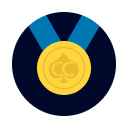Debi
Forum Admin
Administrator
Today is the first day of our book discussion. These are the sections we agreed to discuss as part 1:
Introduction
Organization
The hands
Brief glossary
Part One: The Game of No-Limit Hold 'em
Introduction
The Cadillac of Poker
Information Availablilty
Controlling Pot odds
What is a Hand?
Elements of a Hand
A Sample Hand
The Hidden Luck Factor in No-Limit Hold'Em
Please refrain from copying and pasting sections from the book in our discussion. Let's discuss it in our own words.
***Part 1 Discussion Sept 24th - Oct 8th***
To ensure proper credit is given for the book:
"Harrington on Hold'Em" was written by Dan Harrington and Bill Robertie and published by Two Plus Two.
Introduction
Organization
The hands
Brief glossary
Part One: The Game of No-Limit Hold 'em
Introduction
The Cadillac of Poker
Information Availablilty
Controlling Pot odds
What is a Hand?
Elements of a Hand
A Sample Hand
The Hidden Luck Factor in No-Limit Hold'Em
Please refrain from copying and pasting sections from the book in our discussion. Let's discuss it in our own words.
***Part 1 Discussion Sept 24th - Oct 8th***
To ensure proper credit is given for the book:
"Harrington on Hold'Em" was written by Dan Harrington and Bill Robertie and published by Two Plus Two.
Last edited:









